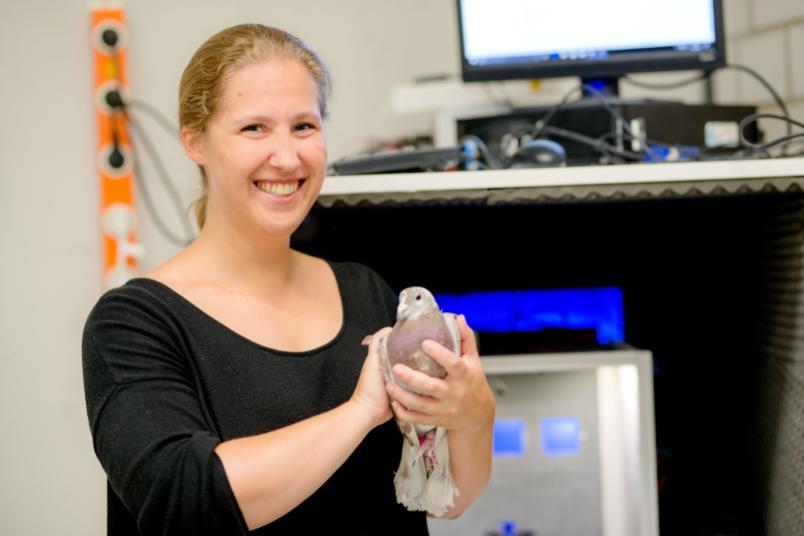 Sara Letzner had humans compete against pigeons in a behavioural experiment. Photo from: Ruhr-Universitat at Bochum
Sara Letzner had humans compete against pigeons in a behavioural experiment. Photo from: Ruhr-Universitat at Bochum
The findings from the study show that the mammalian cerebral cortex, with all of its cortical layers, is not the only type of brain that can perform complex tasks as birds do not have a similar cortical organization. "For a long time, scientists used to believe the mammalian cerebral cortex to be the anatomical cause of cognitive ability; it is made up of six cortical layers. That means the structure of the mammalian cortex cannot be decisive for complex cognitive functions such as multitasking," Dr. Letzner said in a press release. Instead, pigeons have 6 times more nerve cells per cubic millimeter of brain tissue than humans! What this means is that information does not have to travel as far since the distance between nerve cells is half that of humans.
The research team studied the time it took for participants to stop a task they were doing and to start a new task as fast as possible. Fifteen humans and 12 pigeons were in the experiment. True multitasking happens when there is no delay between tasks and the brain must therefore think of both tasks at the same time. In contrast, switching completely between two tasks requires nerves that control each task to communicate. They found that pigeons switched tasks 250 milliseconds faster than humans. What this means is that pigeons are able to not only process information faster, but also communicate more efficiently between cells undergoing different tasks.
Sources:
Categories
